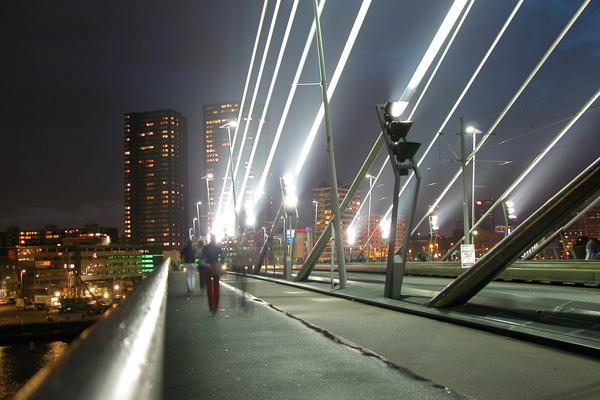Retire in Rotterdam Guide
Summary: If Rotterdam is on your retirement radar, our detailed Retire in Rotterdam Guide is your go-to resource. Delve into the crucial aspects of life here, including living costs, climate, housing options, healthcare services, and residency procedures. We also explore the city's social dynamics, volunteering scenes, transportation, and how walkable its neighborhoods are.

Retiring in Rotterdam, is an increasingly popular choice for international retirees. The city offers a high quality of life, a vibrant cultural scene, and a welcoming atmosphere. However, like any major life change, retiring in a foreign country comes with its own set of challenges. This article will explore the best aspects of retiring in Rotterdam, as well as some of the potential difficulties.
Cost of Living
Rotterdam is known for its relatively affordable cost of living compared to other major European cities. Housing, in particular, is significantly cheaper than in cities like Amsterdam or London. However, keep in mind that the cost of living can vary greatly depending on your lifestyle and spending habits. Groceries, dining out, and entertainment are generally reasonably priced, but imported goods can be expensive.
Climate
The Netherlands has a temperate maritime climate, with mild summers and cool winters. Rotterdam, being a coastal city, experiences this climate with temperatures ranging from 2°C in winter to 22°C in summer. Rainfall is spread evenly throughout the year, so it's a good idea to always have an umbrella handy!
Healthcare
The Netherlands boasts one of the best healthcare systems in the world. Rotterdam is home to several top-notch hospitals, including the Erasmus MC, one of the most innovative medical centers in Europe. There are also plenty of general practitioners and specialists throughout the city.
Public Healthcare System
International retirees are eligible to enroll in the Dutch public healthcare system, which provides comprehensive coverage. However, it's important to note that there is a mandatory health insurance requirement in the Netherlands, and premiums can be quite high. Many retirees opt for private health insurance to supplement their coverage.
Residency Options
The Netherlands offers several residency options for retirees, including long-term stay visas and retirement visas. It's recommended to consult with an immigration lawyer to understand the best option for your situation.
Parks and Recreational Activities
Rotterdam is a green city with numerous parks and recreational areas. The Kralingse Bos, a large forested park with a lake, is a favorite among locals. The city also offers a wide range of cultural activities, from museums and art galleries to music festivals and theater performances.
Restaurants
Rotterdam's culinary scene is diverse and vibrant. Some popular, reasonably priced restaurants include De Matroos en het Meisje, known for its Dutch cuisine, and Spirit, a buffet-style restaurant offering a wide range of vegetarian and vegan options.
Learning the Language
While English is widely spoken in Rotterdam, learning Dutch can enhance your retirement experience. The Rotterdam University of Applied Sciences offers Dutch language courses for beginners and advanced learners.
Local Culture
Rotterdammers are known for their straightforwardness and hardworking nature. They are generally friendly and welcoming to foreigners, but it may take some time to form deep connections. Joining local clubs or participating in community events can help you integrate into the local culture.
Meeting People and Volunteering
Volunteering is a great way to meet people and contribute to the community. Organizations like the Rotterdam Volunteer Centre can help you find opportunities that match your interests and skills.
Housing
Most retirees in Rotterdam live in apartments, which are plentiful and come in a range of sizes and prices. Popular neighborhoods for retirees include Kralingen, known for its green spaces and quiet atmosphere, and the city center, which offers easy access to amenities and cultural activities.
Transportation
Rotterdam has an excellent public transportation system, including trams, buses, and a metro system. The city is also very bike-friendly, and many locals prefer cycling to driving. Owning a car is not necessary for most retirees living in Rotterdam.
Retiring in Rotterdam offers a unique blend of urban convenience and relaxed living. With its high-quality healthcare, affordable cost of living, and welcoming atmosphere, it's no wonder that more and more international retirees are choosing to call this Dutch city home.
About the Author
 Betsy Burlingame is the Founder and President of Expat Exchange and is one of the Founders of Digital Nomad Exchange. She launched Expat Exchange in 1997 as her Master's thesis project at NYU. Prior to Expat Exchange, Betsy worked at AT&T in International
and Mass Market Marketing. She graduated from Ohio Wesleyan University
with a BA in International Business and German.
Betsy Burlingame is the Founder and President of Expat Exchange and is one of the Founders of Digital Nomad Exchange. She launched Expat Exchange in 1997 as her Master's thesis project at NYU. Prior to Expat Exchange, Betsy worked at AT&T in International
and Mass Market Marketing. She graduated from Ohio Wesleyan University
with a BA in International Business and German.
Some of Betsy's articles include 12 Best Places to Live in Portugal, 7 Best Places to Live in Panama and 12 Things to Know Before Moving to the Dominican Republic. Betsy loves to travel and spend time with her family. Connect with Betsy on LinkedIn.
Additional Information:
- Driving in Rotterdam
- Cost of Living in Rotterdam
- Health Care in Rotterdam
- The Essential Guide to Rotterdam
- Healthcare & Health Insurance in Netherlands
- Best Places to Live in Netherlands
- Real Estate in Netherlands
- Pros & Cons of Living in Netherlands
- Culture Shock in The Netherlands
- Pros and Cons of Living in Netherlands 2025
- 2025 Guide to Moving to Netherlands



